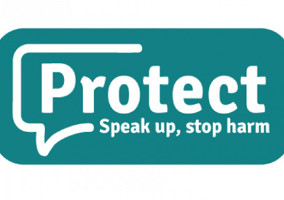What does the war against economic crime have to do with charities? As the economic crime (corporate transparency) bill progresses through parliament, peers will be debating whether organisations should face a new offence of “failure to prevent” fraud and whether there should be fines or criminal sanctions for those who commit the offence. So it is timely that charities consider what arrangements they have in place to stop financial wrongdoing.
Staff and volunteers are best placed to help
In last year’s Charity Fraud Awareness Week, we heard that one in eight charities experienced online fraud over the past year, while fewer than 25% of charities had fraud prevention policies in place. Fraud affects all sectors of society and charities need to take action to prevent the damage it causes to finances, reputation and public trust.
The good news is that your staff and volunteers may be the best placed to help you. Research by the Association of Certified Fraud Examiners found that 42% of occupational frauds are identified by tips and half of those were from employees. Simply put, those working inside organisations are closest to the issue and the best possible source to identify the risk of fraud.
What isn’t always clear to staff is how to blow the whistle when they identify wrongdoing, particularly if they can’t raise a concern with their immediate line manager.
Identify your charity’s whistleblowing policy
Whistleblowers wanting to raise a concern should first look for the charity’s whistleblowing policy. Does it identify a named individual or safe channels outside of line management that staff or volunteers can go to? If not, does the whistleblower feel able to raise the concern with the chief executive officer or the board of trustees?
Sometimes, concerns can’t be addressed internally. The whistleblower may have tried to raise an issue and been ignored or may fear retaliation if they raise concerns internally or perhaps a very senior member of staff is involved in the wrongdoing. That’s when we can advise on external routes to raise concerns. This may be the Charity Commission, another regulator, an MP or even the media.
No charity wants to hear about wrongdoing first from the regulator or to read about it in the press. So effective whistleblowing internal arrangements are key. Whistleblowers inside charities can identify a range of public interest concerns as well as financial wrongdoing. Workers will be aware when the workplace culture has become toxic, whether through bullying or harassment of staff. They will know when beneficiaries are not being safeguarded or when there are health and safety concerns for the workforce.
Ensuring that your charity is a safe place to speak up when risks are identified is not as easy as it sounds though. Our Time to Transform report in 2020 identified some strengths and weaknesses from charities using our Whistleblowing Benchmark. In our pilot group, 100% of charities had a whistleblowing policy, 81% said that they had a zero-tolerance approach to victimisation and 67% gave whistleblowers assurances about their confidentiality in their policy.
Actions speak louder than words
These statements are important but they also need to be backed up by action. Sadly, none of the charities could show that they had a process in place to monitor if victimisation had occurred. We also found 86% of charities failed to train those staff responsible for handling concerns and 62% did not test whether their staff were aware of the arrangements in place.
There are a number of misconceptions about whistleblowers, one being that they are persistent in raising their concerns. Our research suggests most whistleblowers will only make one attempt to speak up and then – if they don’t have a positive response – they will keep quiet. So managers have a small window of opportunity to recognise and respond appropriately to concerns. That first interaction is crucial. Training for line managers and senior leaders can make the difference between a concern being addressed and the whistleblower going silent and the risk growing.
Recent years have rightly seen an increased emphasis on ethical standards, good governance and safe workplace cultures in charities. To demonstrate commitment to all three, investment in effective whistleblowing arrangements is key.
Elizabeth Gardiner is chief executive officer of Protect
Related articles











